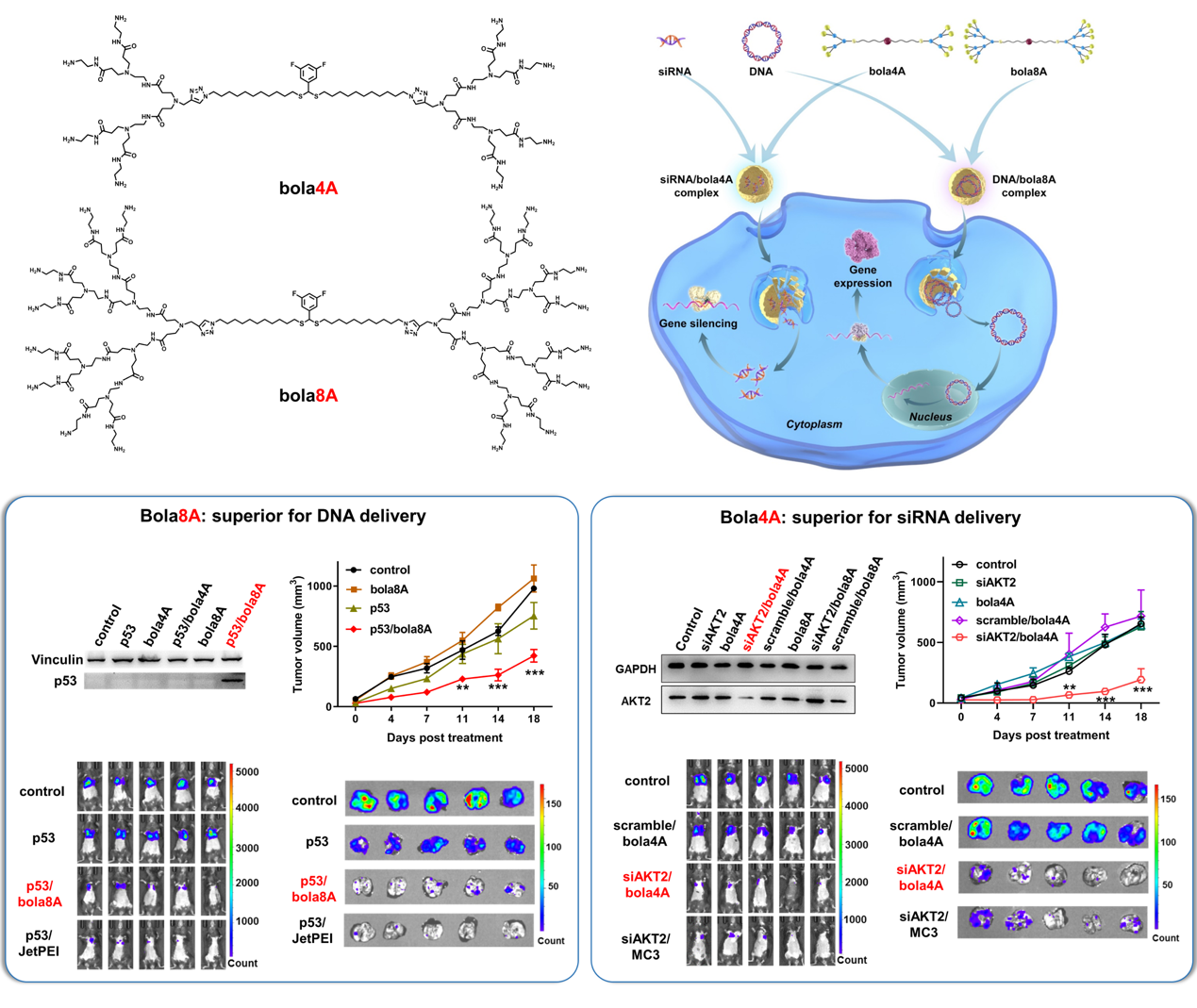Abstract
Nucleic acid therapeutics are becoming an important drug modality, offering the unique opportunity to address “undruggable” targets, respond rapidly to evolving pathogens, and treat diseases at the gene level for precision medicine. However, nucleic acid therapeutics have poor bioavailability and are chemolabile and enzymolabile, imposing the need for delivery vectors. Dendrimers, by virtue of their well-defined structure and cooperative multivalence, represent precision delivery systems. We synthesized and studied bola-amphiphilic dendrimers for cargo-selective and on-demand delivery of DNA and small interfering RNA (siRNA), both important nucleic acid therapeutics. Remarkably, superior performances were achieved for siRNA delivery with the second-generation dendrimer, yet for DNA delivery with the third generation. We systematically studied these dendrimers with regard to cargo binding, cellular uptake, endosomal release, and in vivo delivery. Differences in size both of the dendrimers and their nucleic acid cargos impacted the cooperative multivalent interactions for cargo binding and release, leading to cargo-adaptive and selective delivery. Moreover, both dendrimers harnessed the advantages of lipid and polymer vectors, while offering nanotechnology-based tumor targeting and redox-responsive cargo release. Notably, they allowed tumor- and cancer cell-specific delivery of siRNA and DNA therapeutics for effective treatment in different cancer models, including aggressive and metastatic malignancies, outperforming the currently available vectors. This study provides avenues to engineer tailor-made vectors for nucleic acid delivery and precision medicine.
Article:https://www.pnas.org/doi/10.1073/pnas.2220787120




